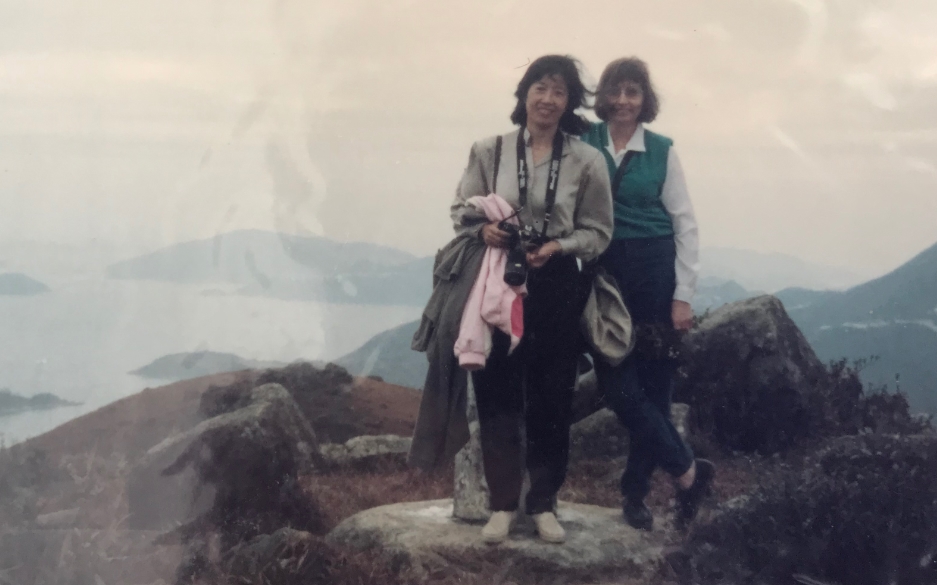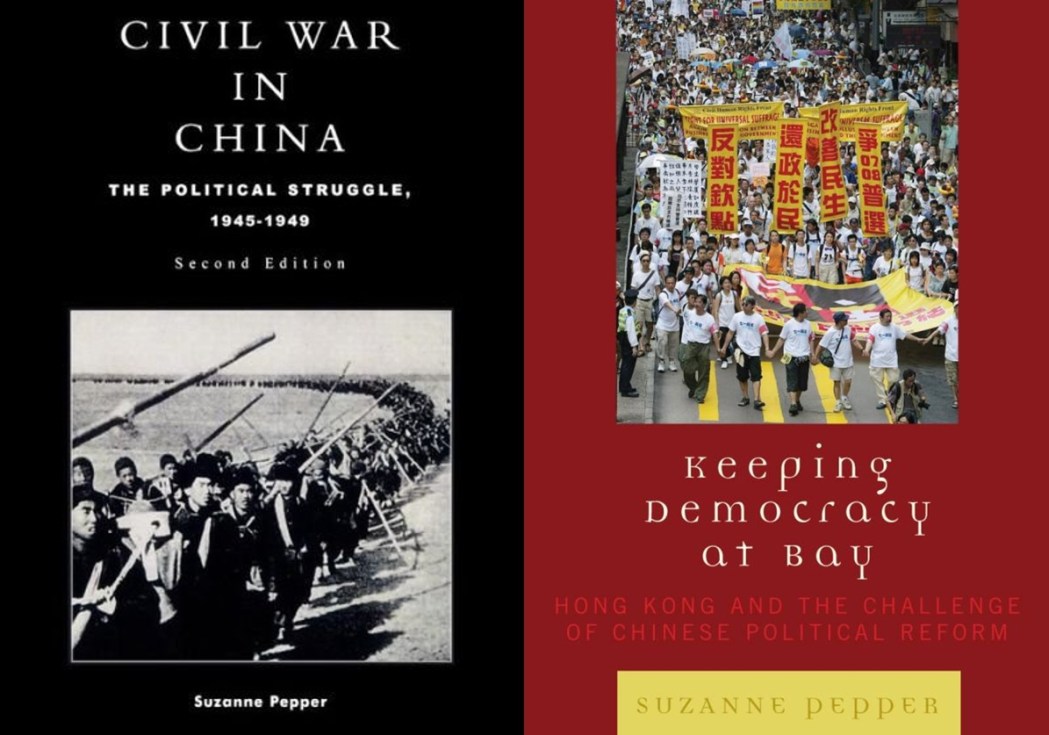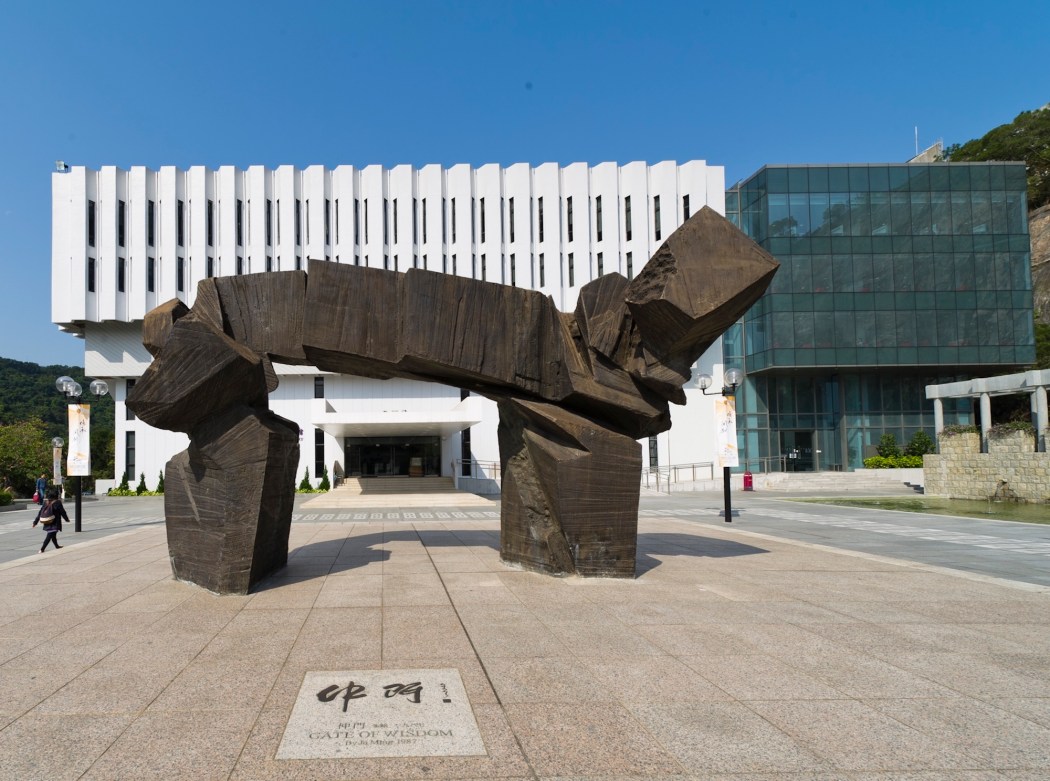I was shocked to learn that Suzanne Pepper had passed away on 29-30 June. For months beforehand, we had been in frequent contact by email. She did without a smartphone or computer at home and relied on those in her office at the old Universities Services Centre at the Chinese University of Hong Kong.

I last met her in person in August 2021 when we had coffee together in the Landmark. On that day, she agreed to break her journey from home to the FCC to collect newspapers on her way to CUHK by MTR. She used these papers and other materials to write her op-eds for HKFP and her blog. We had a marvellous catch-up. We talked about our perceptions of how Hong Kong had changed, where it was headed, where the red lines were, whether we had crossed any of them (no, we both concluded) and about old friends with whom we still keep in touch.
She seemed fine, focused on deadlines and on delivering the high-quality pieces she wrote bi-monthly analysing political developments in Hong Kong. We were in frequent contact after that about these issues. She did not reply to my email last week, I know now because of her failing health.

I first met Suzanne in 1975 when I turned up at the Universities Service Centre, then on Argyle Street, to do fieldwork for my PhD dissertation. She had an office there and was working on China’s education system and its reform. She was a regular there, and I saw her often, especially at the lunches prepared most days by the USC kitchen. Suzanne married VG Kulkarni, who became an editor at the Far Eastern Economic Review. They lived on Bonham Road in an apartment across from the University of Hong Kong. When the building was redeveloped, they moved to North Point. VG passed away in 2014.
Suzanne visited me in San Francisco in 1983 on one of her trips back to the US, to visit relatives and use the archives there. I was away from HKU at the time on a post-doctoral fellowship at the UC Berkeley’s Center for Chinese Studies, where she had studied with Chalmers Johnson.
Suzanne was first known for her research on China’s education system, and the book, China’s Education Reform in the 1980s (University of California Press, 1990). She published a second book Radicalism and Education Reform in 20th Century China: the Search for an Ideal Development Model, Cambridge University Press in 1996. It is a long read, over 600 pages, and received rave reviews. Always the master of documentary sources, both newspaper, memoirs, and official documents, and with excellent Chinese-language skills, Suzanne wove these together with the émigré interviews that we used to research 1960s and 1970s China. She brought to life education during the Cultural Revolution. The book analyses China’s attempt to adapt Western education models to China’s conditions.
Suzanne benefited from a 1980 research trip to China sponsored by the US Committee on Scholarly Communication with the PRC, which focused on post-1976 education reforms. Writing two chapters in the Cambridge History of China Vols 14 and 15, and a century-spanning conference paper in 1984, set the larger project in motion. As Suzanne said, the book was the culmination of two decades of work on the topic.

Suzanne turned her attention to the post-World War Two struggle between the communist and nationalist parties to rule China. Based on new research and archival materials, she published Civil War in China: The Political Struggle 1945-1949 (Roman & Littlefield, 1999). This analyses the weakness of Kuomintang governance, concluding with a summary indictment of their rule. She presents the communist party’s alternative and shows how it was able to win the day in 1940s rural and urban China. The Japanese invasion of China played a key role in this outcome. Reviewers saw the book as a definitive account that has stood the test of time – high praise indeed.
As Hong Kong became once again part of China, Suzanne turned her attention to political developments here. Her work brought together her amazing grasp of mainland politics and society with Hong Kong’s lived reality. In 2007 she published Keeping Democracy at Bay: Hong Kong and the Challenge of Chinese Political Reform (Rowman & Littlefield). Unusually, she nested Hong Kong’s democratic development within the wider context of political developments on the mainland. This study relied on her voracious reading of the local and mainland Chinese language press and should be read by anyone who wants to understand what happened to Hong Kong in 2019-20. She nailed it.

Suzanne was the institutional historian of the Universities Service Centre in Hong Kong. She spent well over half a century there researching China and Hong Kong. As a result, her name today, more than that of any other, stands synonymous with the USC. In many ways they are interchangeable.
Suzanne had her own blog, Hong Kong Focus, where her post-Keeping Democracy at Bay work on this topic may be found. Originally hosted by the Carter Center in the USA, the blog is maintained by HKFP. I urge all those interested in Hong Kong’s recent political development to read the blog, for Suzanne had special insights that we all can learn from. Her capacity to integrate Hong Kong’s story with political developments on the mainland is legendary. She will be sorely missed. RIP, Suzanne.
Support HKFP | Policies & Ethics | Error/typo? | Contact Us | Newsletter | Transparency & Annual Report | Apps
| HKFP is an impartial platform & does not necessarily share the views of opinion writers or advertisers. HKFP presents a diversity of views & regularly invites figures across the political spectrum to write for us. Press freedom is guaranteed under the Basic Law, security law, Bill of Rights and Chinese constitution. Opinion pieces aim to point out errors or defects in the government, law or policies, or aim to suggest ideas or alterations via legal means without an intention of hatred, discontent or hostility against the authorities or other communities. |
Help safeguard press freedom & keep HKFP free for all readers by supporting our team

More HKFP OPINION:
HKFP has an impartial stance, transparent funding, and balanced coverage guided by an Ethics Code and Corrections Policy.
Support press freedom & help us surpass 1,000 monthly Patrons: 100% independent, governed by an ethics code & not-for-profit.










